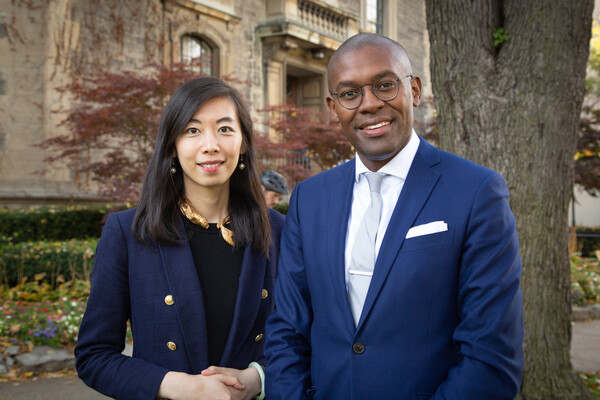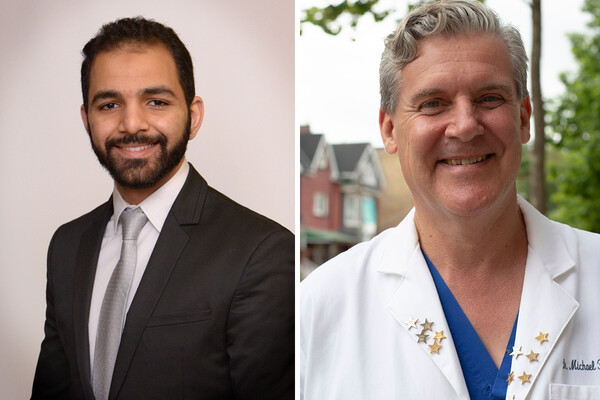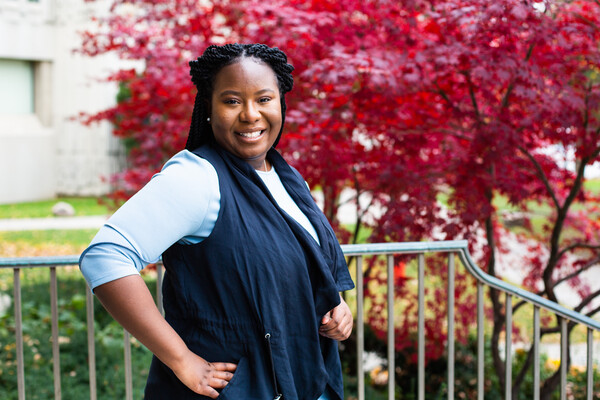Breadcrumbs
- Home
- MD/PhD Program
- News
- Faces of U of T Medicine: Tommy Hana
Faces of U of T Medicine: Tommy Hana
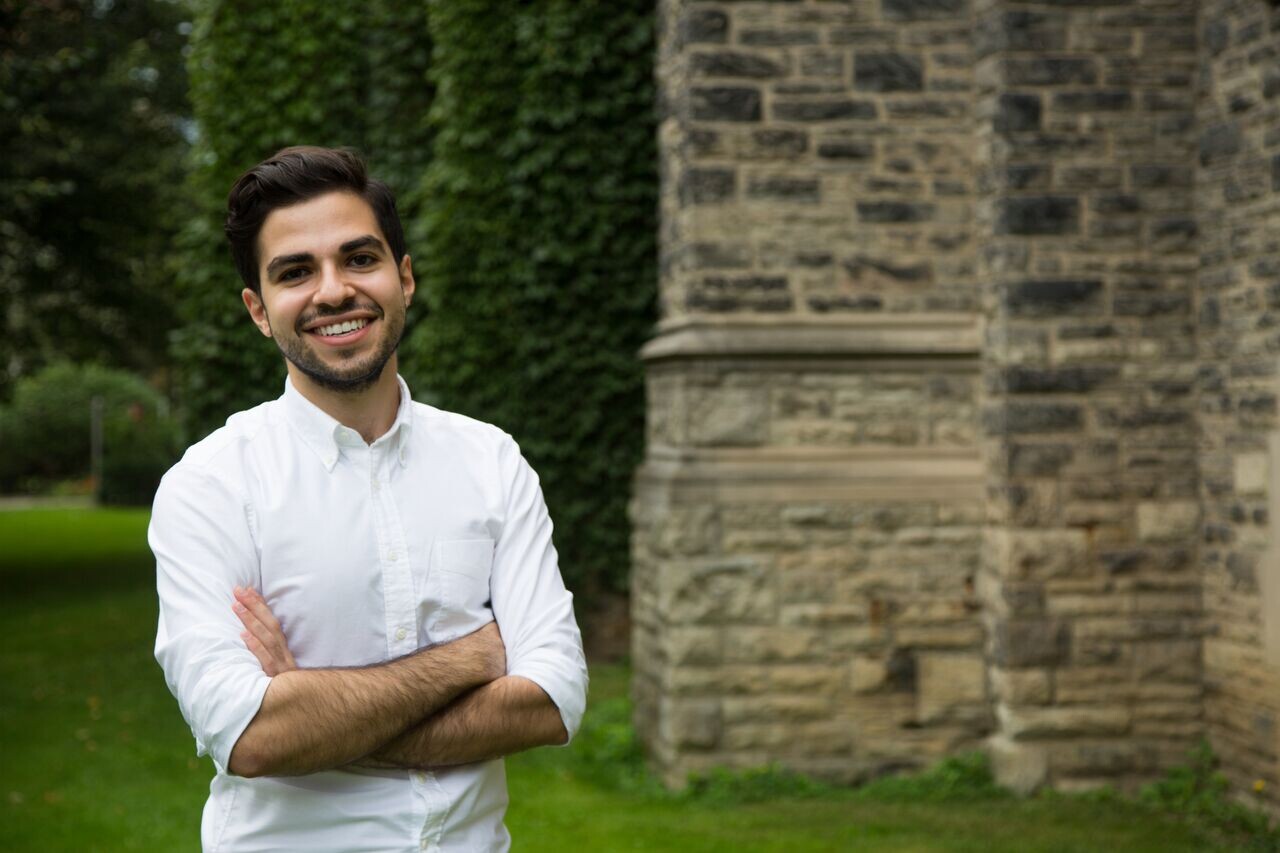
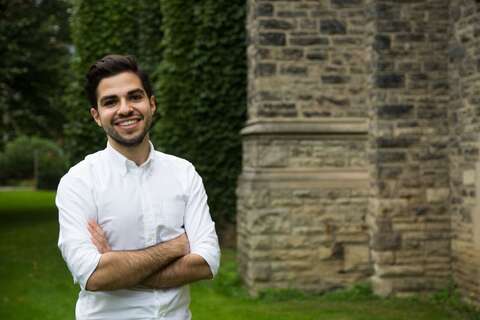
What’s your academic background?
I completed an Honours BSc in Life Sciences at Queen’s University as a Loran Scholar.
Have you always wanted to be a doctor? What made you want to become one?
I spent most of my life not knowing what it meant to work in a professional field. Although I was born in Canada, my family were political refugees fleeing genocide in northern Iraq. Neither of my parents were able to attend school throughout their lives in Iraq, so when they arrived in Canada with my older siblings, they had to work to understand a new academic, professional, and social system. Because of the new opportunities that were available to us, academia was always at the heart of our household.
What truly made me want to become a doctor was the ability to be an advocate for those that are in less than ordinary circumstances. A generous and diverse community has always been the basis of all the opportunities I have had in life. At times, my skies were dark and my path was full of barriers but I had rainbows in my clouds.
Dr. Maya Angelou taught me that the thing to do in life is to prepare yourself to be a rainbow in somebody else’s clouds. I’m confident that my time at U of T will help me enter the world of medicine as a servant to various communities; those that have stood by me in the past and those who need a bit of rainbows in their clouds.
What are the aspects of medical school that you’re looking forward to most?
I’m looking forward to meeting my fellow classmates! The exciting thing about medical school is that you get to enjoy the company of and learn from a group of incredibly motivated people that have diverse passions and unique experiences.
What aspects of healthcare are most important to you?
Having lived in and visited many countries around the world, I have really come to appreciate Canada’s healthcare system and our ability to access it without having to worry about financial burdens. Universal health coverage had always been a default in my life, and I can recognize that I am exceptionally privileged to be able to say that. It’s a cause I’ve already begun to pursue and plan to continue to work on during my time at U of T and as a practicing physician.
What are your areas of interest? Do you know which specialty you’d like to pursue?
At the moment, I can’t say what specialty I would like to pursue. I would rather my experiences in and outside the classroom within the next few years help inspire that. But as a result of my experiences, I have a strong interest in the intersection of infectious disease and public health. I had the unique privilege of working at the World Health Organization during the height of the Zika outbreak which gave me an insight into how experts in the field of medicine, politics, and public health react when the world is experiencing a public health crisis.
Talk a bit about that. What was it like working at the World Health Organization and what did you learn from your experience?
During my summer at the WHO, I worked on several projects relating to LGBTQI+ health. My work was based in the WHO headquarters in Geneva, with the department of Gender, Equity and Human Rights. It was an extremely interesting yet difficult environment to conduct this type of highly politicized work. At one end, you have progressive clinicians, politicians, and public health experts urging you to continue your work, while on the other side, you have ministers of health from countries that have discriminatory policies towards LGBTQI+ people, demanding that you put an end to your work. My experience at WHO gave me insight into the workings of the international health bureaucracy, and I used that experience to reshape the method in which I advocated for communities that have been historically disenfranchised. I developed and published the first WHO FAQ on Health and Sexual Diversity and organized the first internal seminar on a holistic approach to transgender healthcare.
I wanted to make sure that my work didn’t end once I left WHO. I’m currently spearheading a policy and practice piece to highlight illustrative examples of how transgender health is being integrated into the Canadian medical school curriculum to advance the global SDG agenda of “leaving no one behind.” I am very proud to say that the most active medical school administration that is supporting and empowering the work I do is UofTMed. This enthusiasm and support had started long before I even decided to apply to their medical program, and I can definitely say that the school’s progressive and innovative approach to healthcare is one of the main reasons I chose to join UofTMed.
What do you think will be the most challenging part of being in medical school?
I believe the most challenging part of being in medical school will be dealing with the mental and emotional exhaustion. Although I’m excited to learn about the various aspects of medicine, I don’t expect it to be easy!
What kind of things do you like doing outside of school?
The exciting thing about going to UofTMed is that I will be based in downtown Toronto. I expect to join a few dance studios or hopefully set up classes with my fellow classmates. I specifically enjoy Afrobeats, Dancehall, Soca, ballet, and hip-hop dance. I also love to cook and bake, so I will give a heads up to the UofTMed community now; potlucks at my house!
Faces of U of T Medicine introduces you to some of the interesting people studying in the Faculty of Medicine. From advising political leaders to providing care to Toronto’s most vulnerable populations, our students are making an impact on communities at home and around the world.
Do you have an interesting story to share? Contact us at medicine.communications@utoronto.ca.
News
